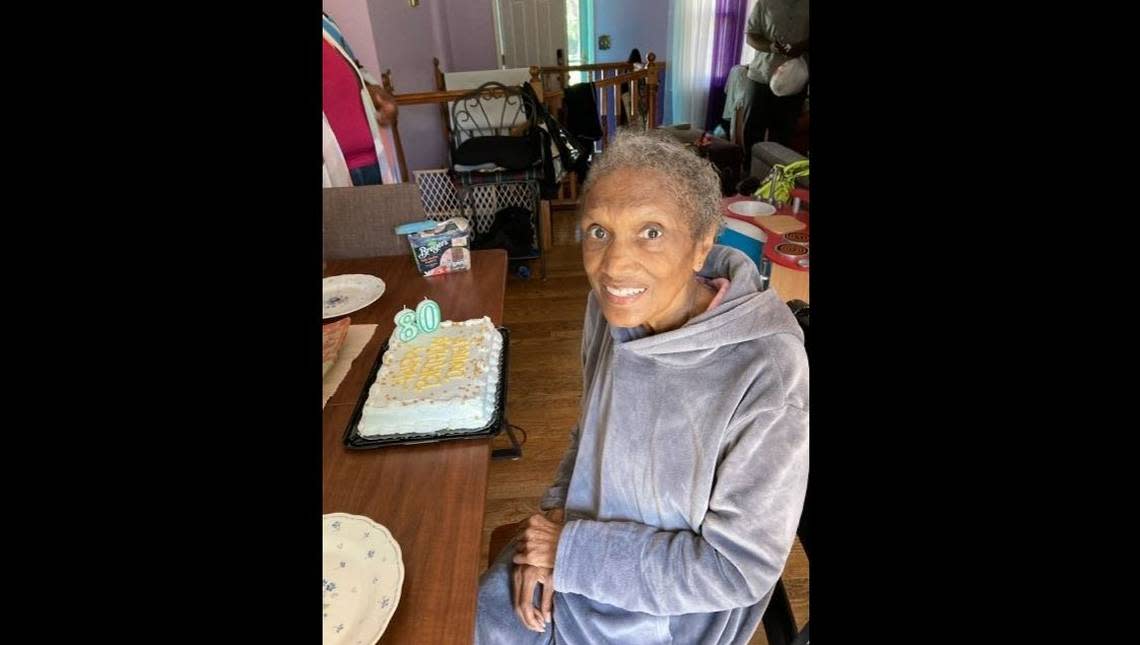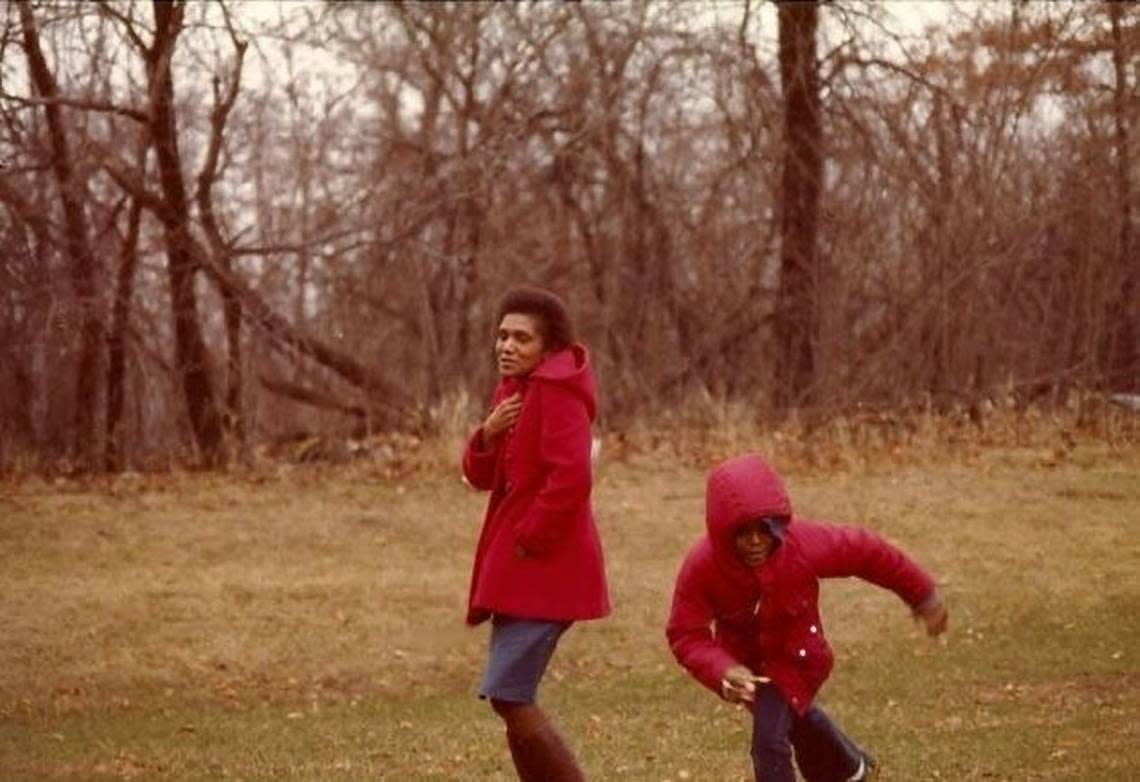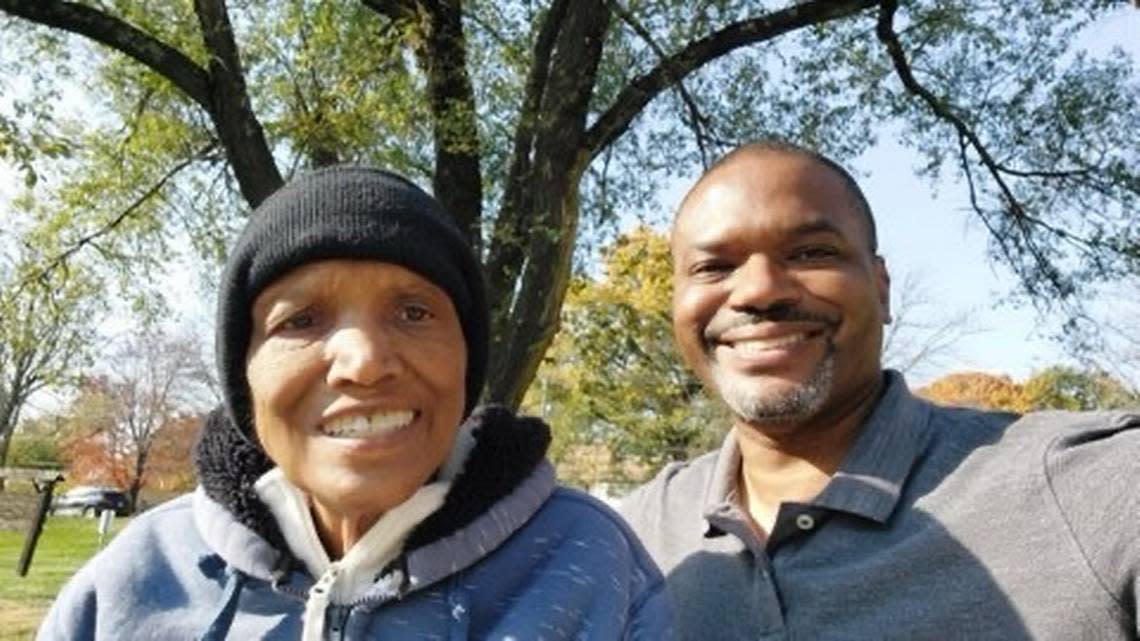‘A teacher at heart’: Donna Gray, Kansas City educator with brilliant mind, dies at 80
Editor’s note: This feature is part of a weekly focus from The Star meant to highlight and remember the lives of Black Kansas Citians who have died.
If a telemarketer called Donna Gray on her home landline, she fell back on a skill she didn’t like to flaunt but would deftly employ when necessary: She spoke in Russian.
The person on the other end, baffled, hung up in defeat. They underestimated their target.
Gray enjoyed teaching herself foreign languages — French, Spanish, Hebrew, Italian, German and even some Japanese — from her time as the valedictorian student of Lincoln High School in Kansas City, Missouri into her adulthood as an endlessly curious educator and mother.
She would write out equation after equation around her two children, trying to prove complex theories like the mathematical existence of God, a passion project of hers. Her daughter, Dana Pryor, of Kansas City, could never make sense of her pages of scribbled calculations.
Gray’s intent was always to share her bountiful knowledge with others. That desire led her to teach math and computer science for 15 years in Kansas City schools, with a keen ability to break down complicated concepts for students and make them understandable.
At age 52, when Gray decided to go back to school to become a nurse, she prepared study guides for the other students of color in her classes. She felt there were cultural biases in the questions.
“I think she’s just a teacher at heart,” Pryor said during a phone call this week. “The way people of color understand things that are taught to the majority may not necessarily be understood…She felt she could help.”
Gray, whose reclusive nature belied an analytic mind churning with big thoughts, questions and theories she often committed to paper, died on July 2, about a month after suffering a seizure, the family said. She was 80.

The word invariably used by friends, family, and former colleagues to describe Gray was brilliant. And it was apt, Pryor said. She had a photographic memory, able to read through a book and be able to recall it to someone. Her love of reading was matched only by her love of writing, feverishly working on projects even up until recently, as she was researching the French-Jewish side of her family.
But, Pryor recalled, she could also be a “comedy of contradictions.” She worked hard to become a nurse, but never wanted to go to the doctor. She strongly believed in science, even getting a minor in chemistry, but didn’t get the coronavirus vaccine. She looked after others before looking after herself.
Her actions, no matter what they were, came from a place of stern conviction, family said. She was going to get things done her way.
There was a time she paid for groceries with $41 she had saved up in pennies, carefully removing each one from neatly packed rolls as her daughter could only look on in muted embarrassment.
Though she was only about 100 pounds, Gray considered herself something of a body builder in her middle age, hitting the gym to lift weights with fierce dedication, her son, Howard Gray, recalled. Movies couldn’t hold her attention but she loved music, especially the soulful singing of Andrae Crouch, a gospel artist she saw in concert too many times to count.
They had floor seats at his show whenever he was in town, to the point where he started to recognize her in the crowd. She met him and his family in Los Angeles once.
If Gray was interested in something, she really committed herself to it, Howard said.
“She was always successful at whatever she started,” he said. “And she was always that consummate learner.”
‘You just keep moving forward’
Born on July 23, 1941, Gray was the oldest child of six, and showed intellectual prowess even as a young child. Her father read to her from magazines instead of children’s books, bypassing fanciful tales for the news of the world. Pretty soon the tiny girl was devouring books on her own.
She garnered a reputation in school for sitting with a book underneath her nose until the moment the lesson began, when she promptly closed it shut. She listened with rapt attention and processed new concepts faster than classmates, sometimes feeling like she knew more than the teachers, Pryor said.
But though her grades were the best in the class every year, she didn’t think too seriously about going to college. Her father had joined the Navy right out of high school, never attending college, and her mother hadn’t gone either. Money was tight.
A biology teacher was the one who saw the talent inside her and suggested she apply to colleges where they might want to pay for her education.
She got into Lincoln University in Jefferson City on a full-ride academic scholarship. After she graduated, receiving Summa Cum Laude honors, she went on to get her masters in mathematics from the University of Missouri-Kansas City.
She never abandoned her spot at the top of the class.
“She was valedictorian of grade school, high school, college, even her master’s program,” Pryor said. “She would get an assignment and complete the assignment that day, and study the assignment until the next class.”
Her first job out of college was for Southwestern Bell, but it was when she began teaching in Kansas City schools a short time later that she found her passion and her calling. One of her students who had stayed close with her and the family always discussed how her desire to never stop learning was infectious, Pryor said.
Though Gray’s two children were from two marriages, both of which ended in divorce, she was a doting, full-time mother to both of them, and the two lived under the same roof for several years.

It could be intimidating, they said, to have the high-achieving teacher as their mother. She asked every day about the status of homework and inspected report cards with a critical eye, zeroing in on any C’s even if they were accompanied by A’s. She didn’t get angry or punish them, though. She simply reminded them school was their job.
When Howard was 12, his mother told him, bluntly, he wasn’t a kid anymore. He was now an adult.
“There’s no more, ‘Hey, I was a little kid,’” Howard said with a laugh. “You will be held accountable for all your actions.”
She also took every opportunity she got to teach them something, helping them feel like they had a leg up on all of their peers. An early believer in computers, she had the primitive, block-shaped TRS-80 released in the 1980’s, and showed her kids what it meant to code.
The main values she preached were manners and integrity, as well as never letting anyone or anything get in the way of your dreams.
She didn’t talk much about race but Howard recalls he once came home and told her how kids at his school had called him the N-word.
That wasn’t his problem, she told him; it was theirs. It didn’t concern him.
All he needed to do was what she had been doing her whole life.
“You just keep moving forward and you prove people wrong,” Howard said, recounting his mother’s advice. “I just make it a point — based on my upbringing, looking back at it — of saying, ‘Hey, I don’t care what you have to say.’”
Never stop learning
Gray was 54 when one of her legs went limp and her speech became slurred. She had been ignoring the symptoms until her brother, able to see she needed help, forced her to go to the hospital. The diagnosis wasn’t good: She had suffered two strokes, one month apart.
Her neurologist concluded she couldn’t handle working anymore, Pryor said, so she had to give up being a nurse.
Her brain, however, stayed busy. She continued doing the things she loved, like reading books, writing papers and playing the organ she kept in her home. She still wanted to learn, to improve.

In January of this year, she caught COVID, which — coupled with advancing dementia — caused her health to take a much steeper decline. She walked slower and her typically sharp head was foggy, clouding her memories and her innate curiosity.
Howard looked after her for about a year before she passed, the most time he had spent with her since he joined the Navy in 1987.
Their conversations weren’t as robust or thought-provoking as they once were, he admitted.
But he was still able to learn new facts about a woman who had quietly led a remarkable life.
“There were a lot of things she forgot but it was just that time to get to know my mom,” Howard said. “Things we’re talking about now — I did not know growing up.”
